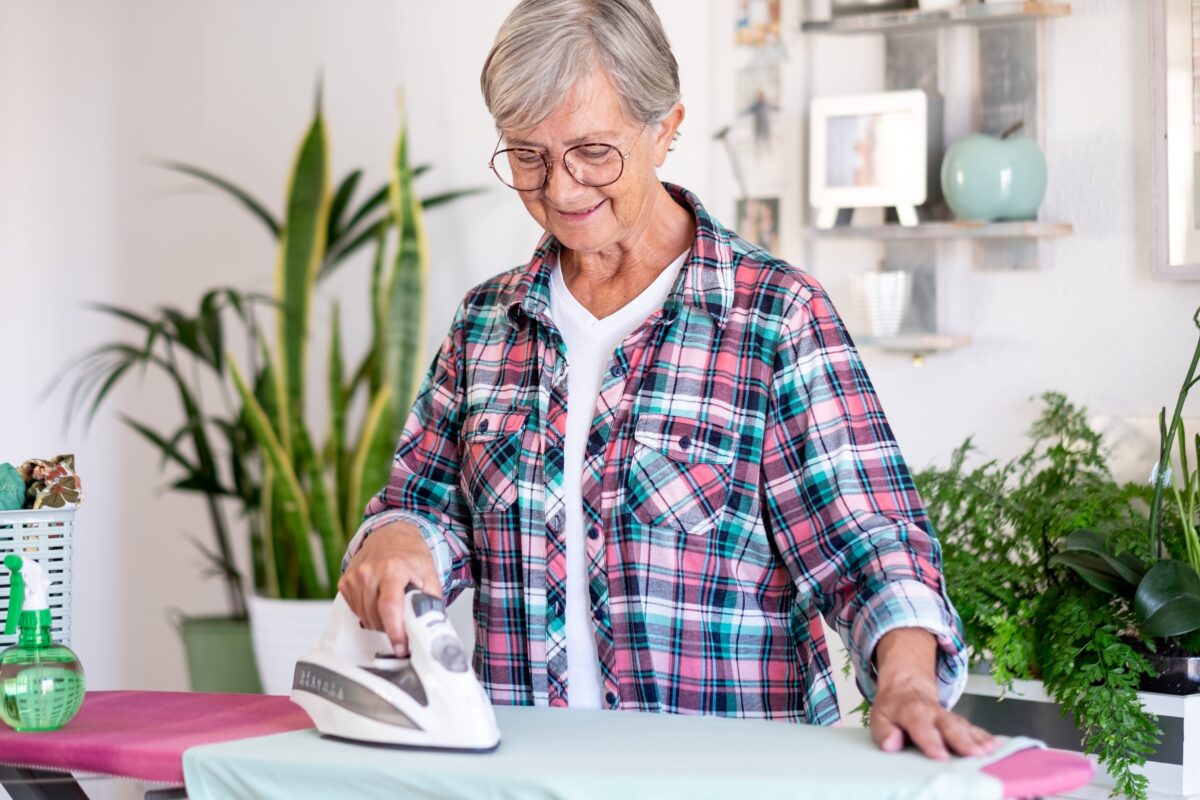How Caregivers Can Help Older Adults Retain Independence
Lack or loss of control can be a very frustrating feeling, and it’s one most people have to contend with as they age. For some, it’s no longer being able to drive safely. For others, it’s needing assistance with walking due to mobility issues. For still others, it’s allowing a home care aide into the home for support with activities of daily living.
A natural reaction to loss of control is resistance. However, for those of us who are caregivers, that resistance can make providing the support a loved one needs challenging. It can feel like having to do daily battle against a loved one’s stubbornness, and as frustration mounts, it can become easy to forget just how much personal freedoms mean to a loved one and how hard it would be for anyone—including us—to give them up.
Benjamin Rose Institute on Aging’s evidence-based dementia care-planning program SHARE for Dementia has found that both independence and not being a burden are two of the most common core care values most older adults share. When providing care for an older loved one, it’s important for us to respect these values and find ways to help that still allow for independence and personal choice.
Here are some tips to consider:
1. Ask your loved one for input
No one likes feel strong-armed, or like they have no say in their own future. From time to time, we all have to do things we’d rather not do, but that shouldn’t be every moment of our lives. The same is true for older adults. So when it comes to making care decisions, don’t purely decide on your own. Ask! For example, if you’re helping your loved one bathe, ask them what privacy measures would make the situation easier for them. Or, if they need someone to check in on them throughout the day and help with certain tasks, ask them to provide a shortlist of people they would be comfortable having over.
2. Give technology a chance:
Technology can seem daunting for some, and for others it’s something that has taken over too many aspects of our lives. If your loved one is wary of technology, don’t push them into getting onto social media or trading in print newspapers for online journalism if they don’t want to. Instead of asking them to open up to the whole internet, try introducing them only to things that have a clear and direct benefit to them, their interests and their independence. Cathy Franz, a care consultant with Benjamin Rose’s care coaching program WeCare…Because You Do, recommends:
- Online bill paying for loved ones struggling to keep on top of finances on their own. Autopay options can assure they don’t miss important payments without involving someone else in handling their bills.
- Online shopping for loved ones with mobility or transportation issues. This can put them in control of purchases and allow them to make their own selections.
- Virtual or telehealth medical visits. These can reduce travel to the physician for follow up appointments, especially during inclement weather. They can also make it easier for you to attend for support without needing to schedule trips to the doctor’s office.
- Medical alert systems and falls prevention aids to support remaining in the hope and provide peace of mind.
3. Make sure your loved one still has connections to their friends and interests
Some care decisions can have a major impact on all aspects of your loved one’s life. For example, if they have to give up driving, this could cut them off from visiting friends, going to religious services or going out to events they enjoy like musicals or bingo. Or, if you decide to move them to your home state so you can be closer to them and provide face-to-face care, this will likely pull them away from multiple communities and people they treasure.
No matter what changes come to your loved one’s life, their ability to remain social and continue to connect with the things they love to do shouldn’t be taken from them. Consider what options are available to support your loved one in staying in touch with old friends and making new ones, whether that means looking into transportation services, getting them involved in a senior center, teaching them how to use online communication platforms, or all of the above. Hobbies can oftentimes be adapted to new situations as well, such as switching from reading novels to listening to audiobooks, or attending virtual classes instead of in-person ones.
4. Consider housing options that allow your loved one to stay at home:
Many recent advancements in eldercare have made it easier for older adults to remain in their own homes rather than be placed in assisted living as a matter of course when they start needing assistance. Which is fantastic news given that, according to AARP, around 77 percent of older adults want to remain in the home for the long term.
If your loved one starts needing a certain level of care, do the research on what housing options are out there and which would best suit their situation if they can’t remain in their current home. If your loved one strongly wishes to stay where they currently live, look into potential home renovations that support aging in place.
5. Embrace community resources:
Community resources are one of the greatest forms of a support for both caregivers and older adults, but are often the most overlooked. Here at Benjamin Rose Institute on Aging, for example, we offer a wide array of community services from mental health counseling and home-delivered meals to care coaching and financial assistance. Nonprofits, disease-specific organizations and specialized senior services exist all across the country to meet important needs and provide solutions to care challenges.
Not sure where to turn to for help? Contact your local Area Agency on Aging for some recommendations, or search your zip code on the Eldercare Locator to see what options are available in your community.







